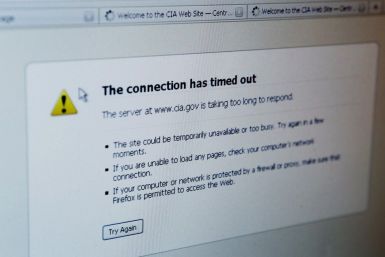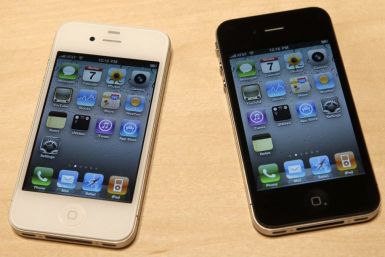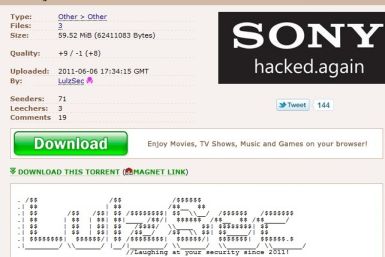Video game developer Sega joined the rapidly growing list of gaming companies whose computer systems have been hacked by cyber criminals.
Sega said issued a warning to users on Friday that personal data may be at risk after being infiltrated, joining the growing numbers of high profile hacking targets.
Japanese computer games publisher Sega has launched an investigation after hackers broke into its customer database, the BBC reported on Saturday, in the latest in a series of online corporate security breaches.
Sega joins the growing list of company's that have fallen victim to cyber attacks after warning users that personal data may be at risk.
Hacking group LulzSec has denied responsibility for the network attack on Sega's online gaming network Sega Pass. Instead, LulzSec issued a statement to Sega saying that they will help Sega to take down the hackers who attacked the site.
LulzSec just issued something like a manifesto on its website. The full text of it is here. Its message is essentially this: don't be so shocked that it's leaking thousands of user passwords and emails.
British mobile carriers have tightened voicemail security since a phone-tapping scandal at News Corp's News of the World tabloid, but technological advances mean eavesdropping is easier than ever.
A German teenager accused of stealing unreleased tracks of Lady Gaga and Justin Timberlake and selling them to fans was jailed on Thursday for 18 months. The 18-year old, who called himself DJ Stolen, operated from his parents' home. He was found guilty of computer break-ins by a court in Duisburg, Germany.
U.S. authorities often prosecute computer hacks that cause more mischief than money losses, but long prison sentences are very rare in such cases. But the hacker will have to face prosecution under the Computer Fraud and Abuse Act, if the victim shows that he or she has suffered a considerable amount of financial damage in a certain period of time.
The National Security Agency (NSA) has teamed up with Internet providers to roll out a new generation of tools to scan e-mail and other digital traffic, in order to prevent cyber attacks against defense firms by foreign rivals.
In yet another High-profile cyber attack case, the public website of the U.S. Central Intelligence Agency went down on Wednesday evening with Lulz Security claiming responsibility for the attack.
The CIA has succumbed to antics of hacker group LulSec Wednesday, making it just the latest in a string of high-profile companies that have fallen victim to cyber attacks.
The latest victim of the now infamous hacking group LulzSec is none other than the US's own Central Intelligence Agency, adding to the recent string of high profile hacking cases worldwide.
The hacker group Lulz Security, which has already hacked into PBS, the FBI, the U. S. Senate and, abive all, Sony, took a bolder step by launching a hotline for taking hacking requests.
LulzSec, the hacker group, has opened a call-in line to take suggestions for the next hacking targets.
Hack-activist group, LulzSec, which has attracted attention due to its recent attacks on Sony, Ninetendo and US broadcaster PBS, has opened a new hack request line to enable its fans to send hacking requests.
The recent string of sensational hacker attacks is driving companies to seek cyberinsurance worth hundreds of millions of dollars, even though many policies can still leave them exposed to claims.
A new research by developer of remote security app Big Brother Camera Security, Daniel Amitay, has revealed that 1234 is the most common iPhone passcode, mimicking the most common internet passwords.
Lulz Security, a loosely aligned group of computer hackers, hacked the Senate's website this past weekend, the Sergeant at Arms Office confirmed on Monday.
The International Monetary Fund’s (IMF) computer system was hacked with large and sophisticated cyberattack and confidential data on national economies and finances are at the risk of exposure. The organization did not disclose the nature of the attack.
Even working on her laptop in Amnesty International's London headquarters or talking on her mobile phone going around the city, Corinna-Barbara Francis suspects Chinese authorities are listening in.
In a bizarre incident early this year, the International Monetary Fund (IMF) faced a cyber attack, ironically from a member-nation, though the fund is not willing to reveal the country's name.



























